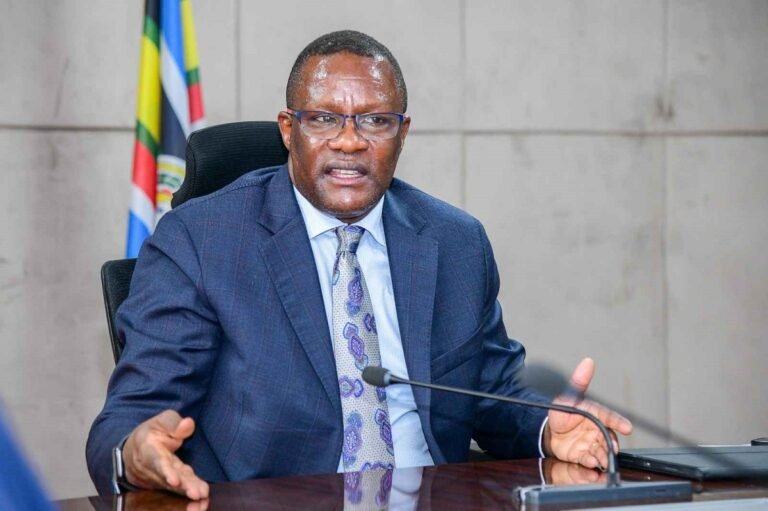Kenya’s Information, Communication & Digital Economy Cabinet Secretary, Eliud Owalo, has announced the plans of the Kenyan government to provide technological infrastructure and inclusive connectivity for all.
At the 14th Annual ICT Management and Leadership Conference of the Computer Society of Kenya, Owalo announced that the government is implementing market interventions to make Kenya a constant net user of ICT equipment and software. He announced that the ministry is collaborating with tech companies and the private sector to launch locally made smart phones, which will cost around Sh6, 000 per unit according to the ministry’s feasibility studies.
“We are rolling out cheap smart-enabled smartphones, and we believe that within our Konza Techno policy, in partnership with the private sector, we should be able to embark on the local manufacture of ICT equipment for a beginning, and eventually we should be able to go the full way in manufacturing ICT infrastructure,” he said.
Hon Owalo said that the ministry is expanding 100,000 kilometres of fibre-optic network infrastructure that will connect health facilities, schools, and the judiciary, among other public institutions. He also said that the ministry is installing 25,000 public WiFi hotspots that will cover markets, bus parks, and other public places.
“Focus is also on providing 1450 village digital hubs geared towards spurring e-commerce, creativity, and the digital economy. We are also training youth in digital technology and finding them well-paying digitally enabled jobs from around the world,” he said.
The CS said the effort is embedded in the objective of making the government of Kenya paperless, climate-friendly, and saving people time and money in search of government services. He said people should be able to get as many of the services as they desire, particularly from the government, from the comforts of their homes or places of work. He added that other emerging developments in digital technology include such innovations as big data analytics, the Internet of Things (IoT), Artificial Intelligence (AI), and block chain, among others. He mentioned the emergence of these technologies are making it easy for quick and efficient decision-making, providing opportunities for real-time situations and process monitoring and analyses that optimise resource use, enhance disaster preparedness, and track progress towards advancing in pursuit of the UN’s global Sustainable Development Goals.
“As a government, we are focused on making the gains from these technologies part of our day-to-day benefits,” he added.
The CS noted that the ICT landscape in Kenya is evolving apace, adding that technology now promises to play an indispensable role in the progress of the country.
“We are witnessing tremendous growth and impact in internet penetration into society, digital literacy, and adoption of new technologies in various sectors—from banking to education and healthcare, and on to agriculture and governance, among other spheres,” he said.
He said there will be no longer a need to have manual processors in the country since, by the end of the year, all government services will have been boarded on the e-citizen platform. He said there should be a mechanism for authenticating people’s identities for ease of accessing government services from the comfort of their homes.




